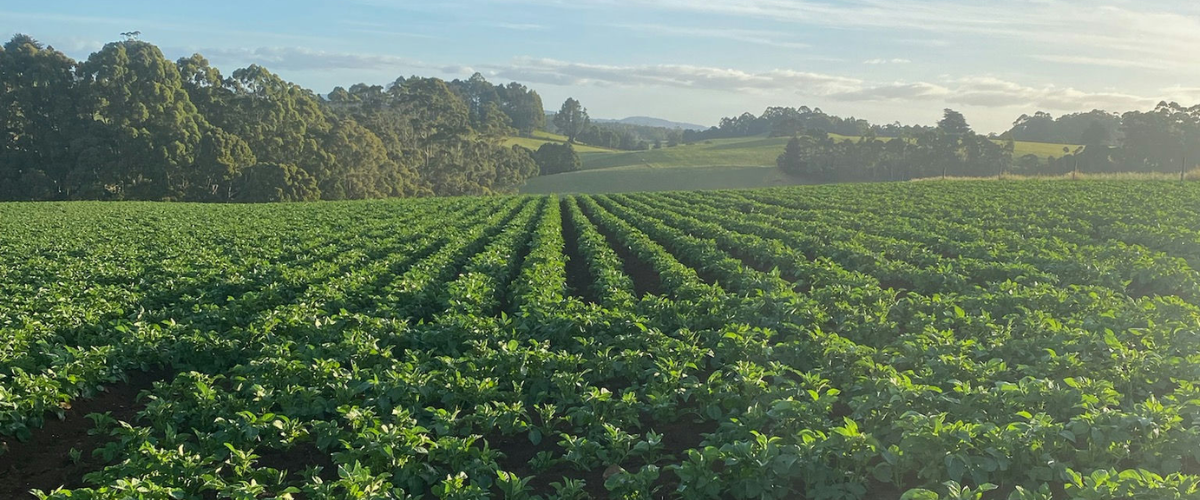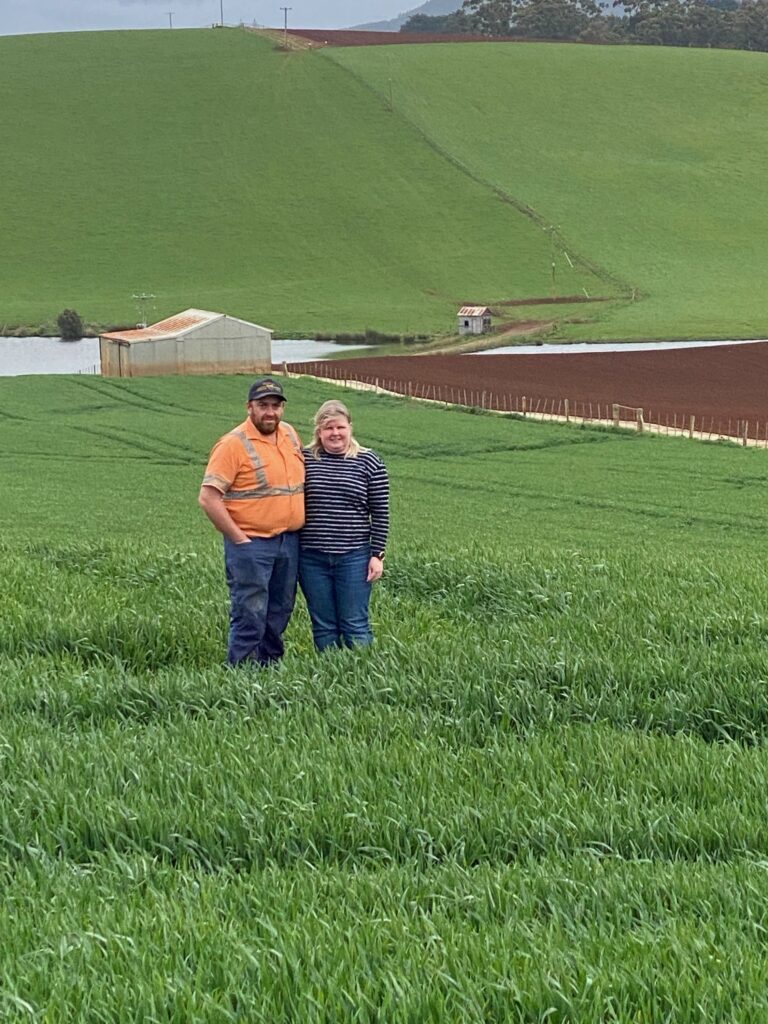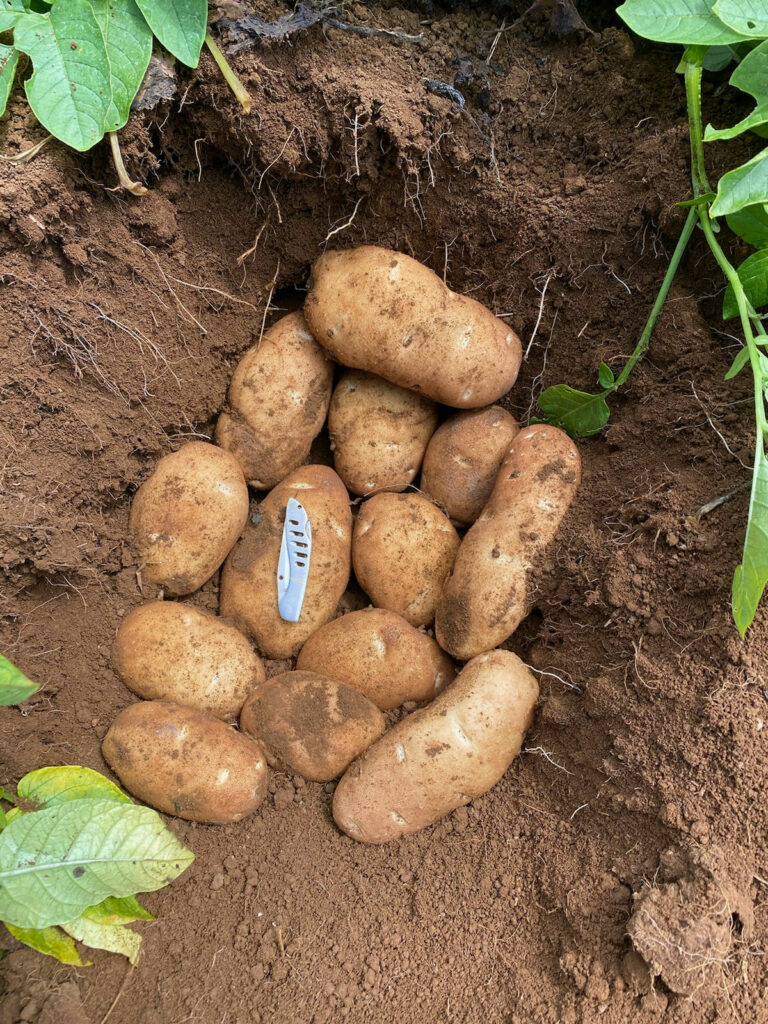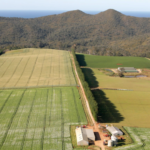
Benchmarking essential to profitability, sustainability
11 December 2024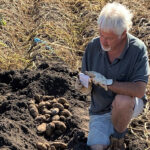
Tasmania’s Spud Doctor reflects on seed potato progress
11 December 2024From a humble 10 acres of potatoes and a few beef cattle, the Elphinstone family farm at Sisters Creek, Tasmania has evolved to around 1,200 acres, historically supplying processors such as Bird’s Eye and Edgell now under the Simplot banner. Leigh Elphinstone is the third generation of the family to grow potatoes and onions.
Rotation on the property is typically a seven-to-eight-year program with a grain such as wheat following the potatoes, cycling with poppies, annual pasture, onions and perennial pasture once more. Of that acreage, around 150-160 acres is under potatoes, 15 acres of onions, 50 acres of poppies and grains across 30 acres.
“This year’s potato season in Tasmania has been one of the better ones for a few years, with planting occurring on time and harvest happening in record time. Typically, contract growers produce around 240,000 tonnes and a further 80,000 tonnes from farms, and we slightly exceeded that this year,” said Leigh.
A drier than average start to the year has meant that harvesting of potatoes has not been held up with rain events, coupled with Simplot’s investment in potato stores enabled the record harvest time to be completed by June. Onion planting began with the spring season hybrid varieties in September, with harvesting occurring in March next year.
The Elphinstone farm also produces seed potatoes to supply other growers who in turn supply potatoes to Simplot.
Tasmania is well placed to produce seed potato given that it does not have diseases present on the mainland such as PVY. Seed certification is undertaken through the Tasmanian Institute of Agriculture.
“Russet Burbank is the backbone variety and has been approved by Simplot customers for years. Onions are generally the larger browns that are better suited to processing,” said Leigh.
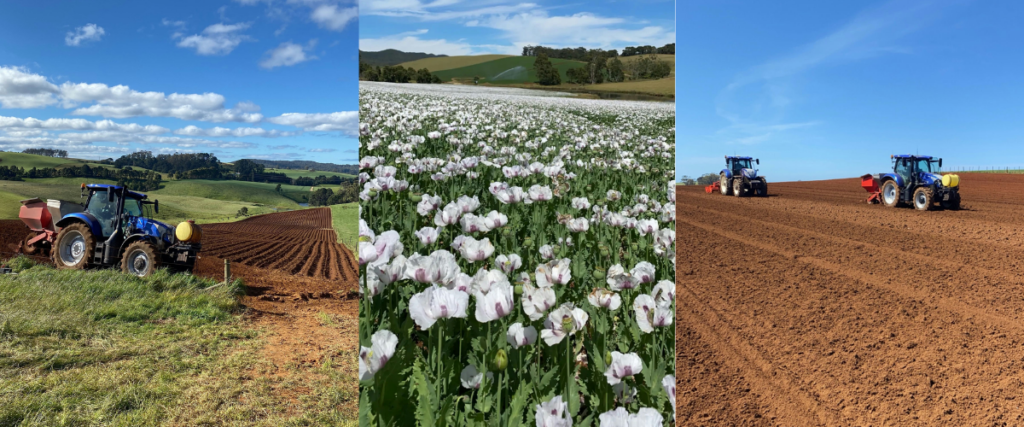
L-R. Leigh Elphinstone’s farm at Sisters Creek. Poppies in flower, destined for the pharmaceutical market. Preparing the field.
“We are always on the lookout for newer potato varieties that have good resistance attributes to disease – powdery scab and pink rot are the two biggest issues in Tasmania.”
Leigh is the Chair of the Simplot Growers Group in Tasmania and has been part of the group for more than 15 years. His father was also on the committee for many years.
The Simplot Growers Group is comprised of members from around Tasmania’s growing regions, and works collaboratively with Simplot to discuss issues and ideas relevant to potato growing for the processor. Discussions may include the forecast for production, seasonal price and what quality Simplot is aiming for. In the past two seasons, with increased cost of production, discussions around base price per tonne has been crucial for growers to achieve a rate that meets production costs.
“One example is that Simplot increased potato storage capacity around the state and took on board the feedback from growers on what that looks like, but also to give growers an opportunity to expand production in the next season.

